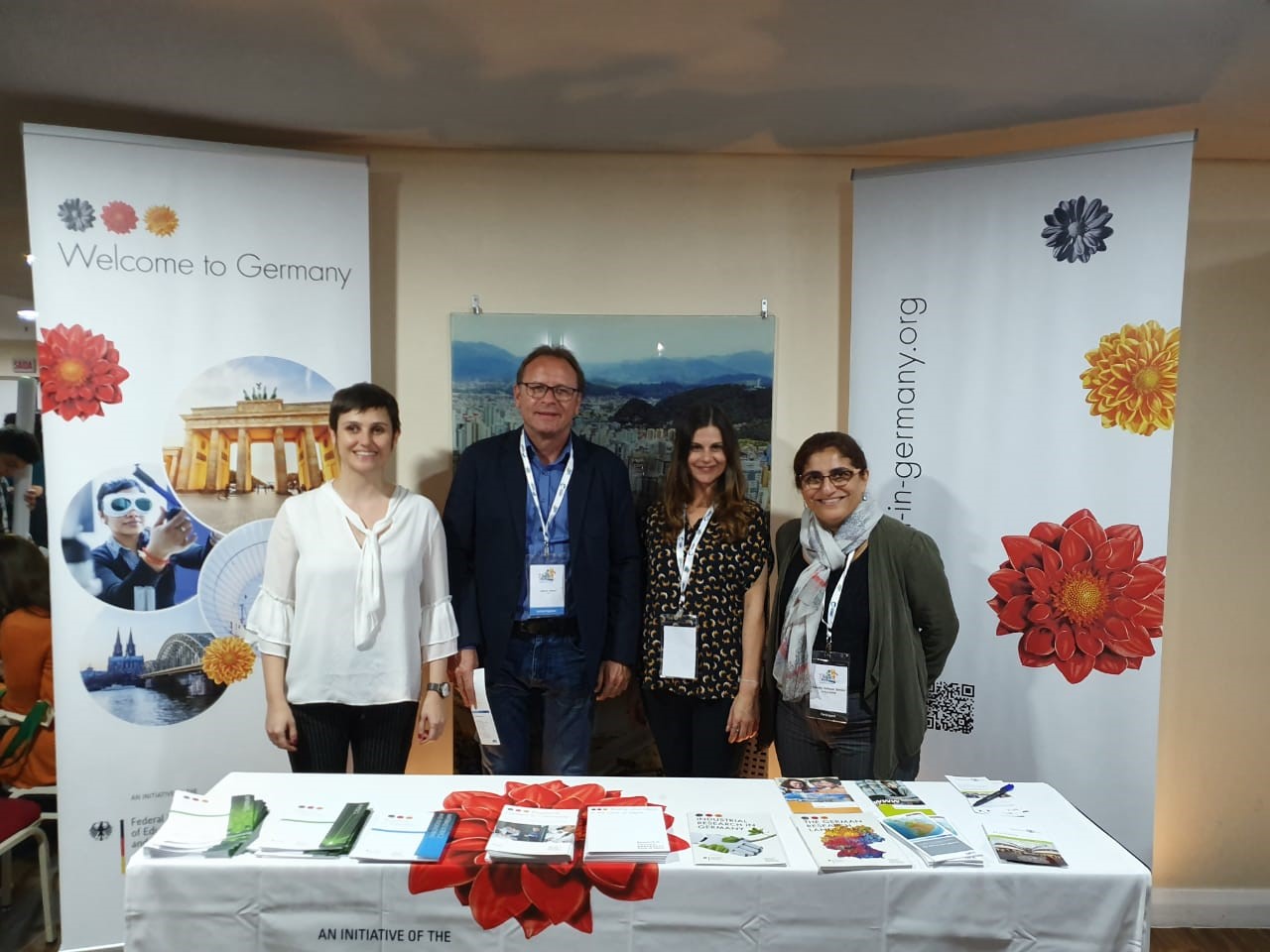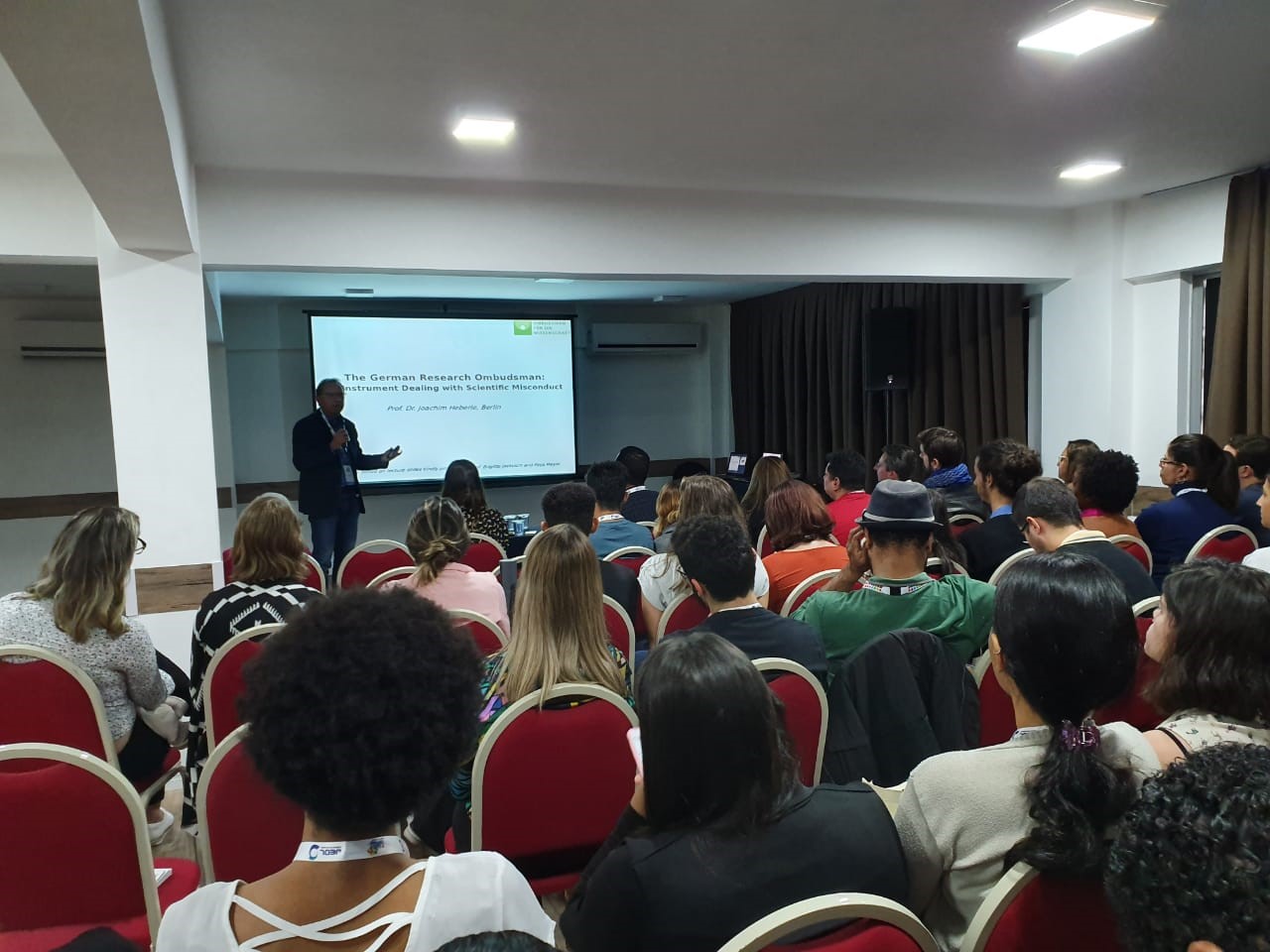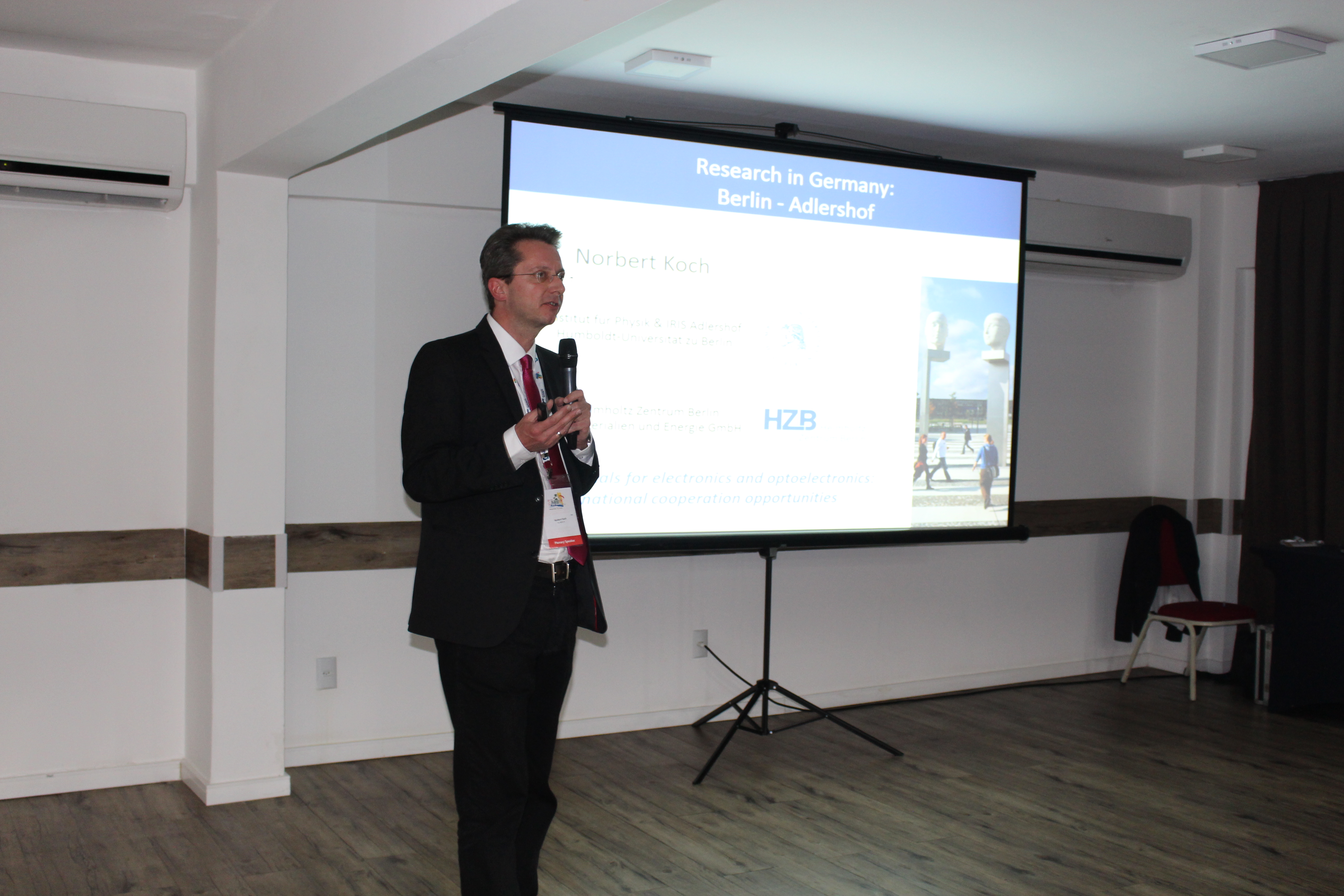Great Interest in Germany as Research Location at Materials Science Conference in Brazil
(09.10.19) At the end of September, around 1,600 national and international researchers – the highest number of attendees to date – came together for the 28th annual meeting of the Brazilian Materials Research Society (SBPMat) in the southern Brazilian coastal resort of Balneário de Camboriú. For the second time, a very successful Research in Germany booth was set up at the event with the active involvement of the DFG Office Latin America.

At the Research in Germany booth: Graziele Lautenschlaeger (DAAD), Prof. Joachim Heberle (FU Berlin), Maxi Neidhardt (DFG), Prof. Renata Autoun Simão (UFRJ)
© DFG
The event was opened by the memorial lecture of Brazilian researcher Prof. Dr. Yvonne Primerano Mascarenhas, who was the first woman to hold a professorship at the engineering faculty of the University of São Paulo in São Carlos and actively involved in the establishment of the Institute of Chemistry and Physics based there. She presented a summary of crystallography in Brazil, starting with the crystallography laboratory established in the 1960s which was continuously updated over the years and financed by the CNPq, FAPESP and FINEP funding institutions.
The culmination of this development was the synchrotron light laboratory in Campinas (LNLS), opened in 1997, and the scientific community is currently keenly awaiting the commissioning of the new particle accelerator SIRIUS. The project, worth R$1.8 billion, is the largest and most technologically complex of its kind in Brazilian research and is based at the Brazilian Centre for Research in Energy and Materials (CNPEM) in Campinas. The facility is expected to add to the international competitiveness of the Brazilian research sector and draw in researchers from around the world.
During the conference, countless attendees from the fields of materials science, chemistry, physics and engineering sciences seized the opportunity to receive comprehensive advice on research and funding opportunities in Germany and to find out more about programmes for academic exchange and bilateral research cooperation at the Research in Germany booth.

View of the large audience
© DFG
On 24 September, there was also a lunch session entitled "Material Bonds: Brazilian-German Exchanges in Material Research". A mixed audience, consisting of almost 200 students, doctoral researchers, postdocs and experienced researchers, listened to the presentations of participating researchers and the funding institutions in attendance.

Presentation by Prof. Norbert Koch (HU Berlin)
© DFG
To begin with, Prof. Dr. Norbert Koch, who works both at the Institute of Physics/Integrative Research Institute for the Sciences (IRIS) Adlershof at the Humboldt University of Berlin and at Helmholtz Zentrum Berlin für Materialien und Energie GmbH, briefly introduced these institutions and then touched upon his research work within the project as spokesperson of the DFG-funded Collaborative Research Centre 951 "HIOS – Hybrid Inorganic/Organic Systems for Opto-Electronics". He rounded off his presentation with tips and advice on establishing contact with researchers in Germany.
Following that, Prof. Dr. Renata Autoun Simão from the Institute of Metallurgy and Materials Engineering of the Federal University of Rio de Janeiro (COPPE/UFRJ) offered the attentive audience a clear insight into her experience as a Brazilian researcher in Germany, touching upon the research location as well as everyday and relevant elements of a visit abroad. Prof. Dr. Joachim Heberle from the department of Experimental Molecular Biophysics of the Free University of Berlin contributed as a member of the “Research Ombudsman” statutory body established by the DFG and, making reference to examples of scientific misconduct, informatively explained how it was founded and how the Guidelines for Safeguarding Good Scientific Practice were compiled – a topic that is currently the subject of intense debate in Brazil. Finally, Graziele Lautenschlaeger from the DAAD Office in Rio de Janeiro and Maxi Neidhardt from the DFG Office Latin America presented information on the funding provided by their institutions and outlined financing options for bilateral research projects.